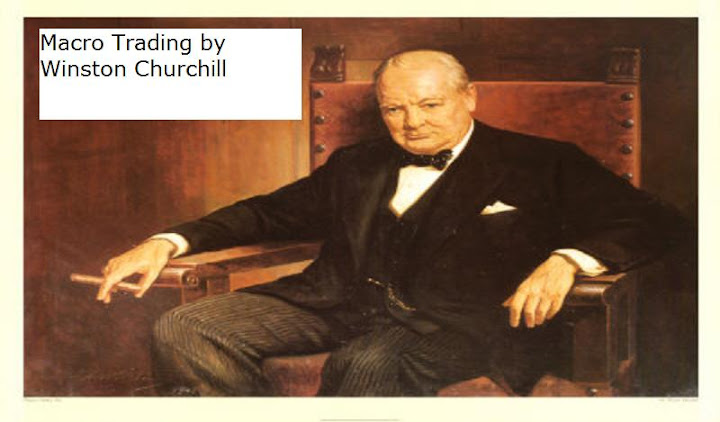My friend Yoshi in Singapore is just back some travels in Asia and is here reflecting on the markets and it is not for faintheartet...... enjoy -steen-
Tuesday, 11 May, 2010
Dear friends,
I've just come back from Indonesia and I would like to share my latest macro thought with you.
Indonesia is a natural-resource rich but politically poor country, but things look very buoyant with many more hotels and restaurants. The tangible assets/natural resources are attracting money like the pre-Asian crisis time.
I found it interesting to hear from the majority of the less fortunate in Indonesia that the Suharto time was better (they say "Life was simpler and the prices were cheaper"), which echoes a recent survey showing the majority of the Russians considers the collapse of the Soviet Union as an unfortunate event.
Sounds paradoxical for some including me who were brought up and educated in the western world: the democracy and capitalism are the only way for all. Or is it? The Romans and the ancient Greek claimed to have had democracy for their citizens at the cost of others. The cultural differences and political system alone cannot explain the difference in the living standard and per capita income in 2010, but it's to do with how the global resources have been allocated. So the reallocation of global resources from the resource concentration continues to be my long-term macro theme and the underlying cause of the increasingly unstable developed economies.
Our world has not evolved enough to say we have democracy and capitalism. We are still in the final phase of the mercantilism: I don't believe for a second that the new $1 trillion EU/IMF plan is about people, it's all about the banks like that of the US and Japan. The two reasons we don't see colorizations any more is because it costs more than the benefits (Afghanistan & Iraq being the case) and the fiat reserve currency system has enabled the US to monetize the global resources to finance itself.
The EU/IMF plan means the existing financial system has grown too big for the US and the EU alone to handle. We can easily presume there will be no money/willingness left to bail out the rest of the world when China, the last hope of the global bubble, bursts. I've said before "Don't let the nominal GDP statistics underestimate the impact. The PPI China is already 75% of the US economy."
I cannot be optimistic about the next two decades when I repeatedly see the corrupt leadership in the G20 continue to allocate the precious resources to the unproductive part of our society. First, they transferred (and continue to) the tax money to the financial system and, now, they are trying to transfer the global resources from the productive part of the world via IMF.
So the mkt is waiting for the four beasts to finish off the existing financial system.
1. Deleveraging of the banking system & reintroduction of the Glass-Seagull
2. Spread of the sovereign insolvency
3. Burst of the Chinese bubble
4. Mass class actions against the main stream media
I still think the summer or the final quarter of 2010 will be the beginning of a long decline in the overly priced intangible assets including the major currencies. I look for the following as the initial signals for the next G20 lost decades:
1. USD/JPY 85
2. 10y UST 5.0%
3. Resignations of PIIGS from the EMU
And the end result after the G7 lost decade will be:
1. S&P 350
2. JPY 65
3. 10y UST 15-20%
4. Gold 3000
5. Demise of the EMU and the EU
6. North American Monetary Union
7. Asian Monetary Fund, independent of the US and Europe
8. Major geopolitical events
So until then, the mkt will still respond to the liquidity injections until it collapses of overdose towards the end of this summer or in the final quarter. My best guess right now is S&P 1270-1320 if the banks will not pre-empt the mkt by a series of more stock issuances.
Yoshi
.jpg)



No comments:
Post a Comment